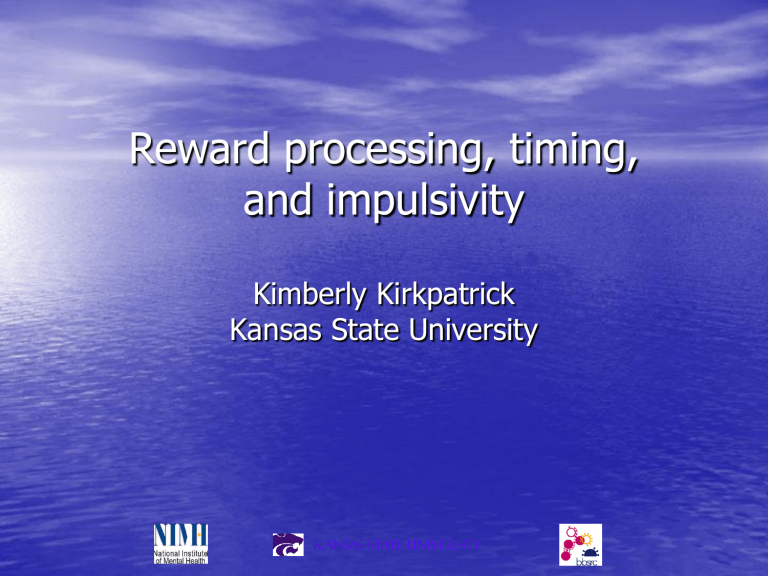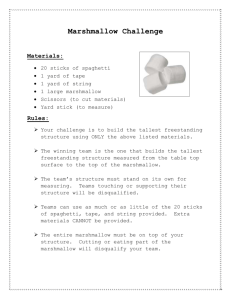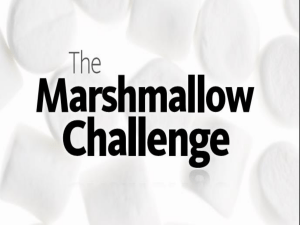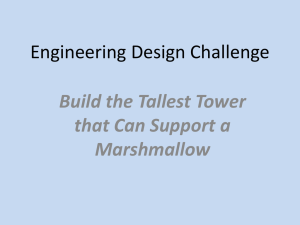Reward processing, timing, and impulsivity Kimberly Kirkpatrick

Reward processing, timing, and impulsivity
Kimberly Kirkpatrick
Kansas State University
Kansas State University
The Marshmallow Test
“The Marshmallow Test”
Smaller-Sooner
4-yr old child
Larger-Later
= higher SAT scores
better social skills
better coping skills
Mischel, Shoda & Rodriguez (1989)
The Marshmallow Test
“The Marshmallow Test”
Smaller-Sooner
4-yr old child
Larger-Later
“Impulsive”
= higher SAT scores
better social skills
better coping skills
Mischel, Shoda & Rodriguez (1989)
The Marshmallow Test
“The Marshmallow Test”
Smaller-Sooner
4-yr old child
Larger-Later
“Impulsive”
= higher SAT scores
better social skills
better coping skills
Mischel, Shoda & Rodriguez (1989)
The Marshmallow Test
“The Marshmallow Test”
Smaller-Sooner
4-yr old child
Larger-Later
“Impulsive”
= higher SAT scores
better social skills
better coping skills
Mischel, Shoda & Rodriguez (1989)
The Marshmallow Test
“The Marshmallow Test”
Smaller-Sooner
4-yr old child
Larger-Later
“Impulsive”
“Self-control”
= higher SAT scores
better social skills
better coping skills
Mischel, Shoda & Rodriguez (1989)
The Marshmallow Test
“The Marshmallow Test”
Smaller-Sooner
4-yr old child
Larger-Later
“Impulsive”
“Self-control”
= higher SAT scores
better social skills
better coping skills
Mischel, Shoda & Rodriguez (1989)
Impulsivity as a trait variable
• Kirby (2009) – tested impulsive choice in 100 undergraduate students and then retested again
5 weeks later and 1 year later
– Test-retest reliability of .77 at 5 weeks
– Test-retest reliability of .63 at 1 year
– Similar to personality traits
• Mischel, Shoda & Rodriguez (1989)
• Two main factors in determining trait variables
– Genetics
– Environment
Impulsivity and drug abuse
• Impulsivity is correlated with drug abuse in humans (e.g., Businelle et al., 2010; Diergaarde et al., 2008)
• Exposure to cocaine has been associated with increased impulsive choice (e.g., Simon, Mendez,
& Setlow, 2007)
• Impulsivity predicts self-administration of cocaine in rats (Perry et al., 2005)
• Some have argued in favor of screening for impulsivity as a part of drug abuse prevention efforts (e.g., Kreek et al., 2005)
Smaller-sooner (SS) vs. Larger-later
(LL) choice paradigm
• Smaller-sooner choice (SS)
• Larger-later choice (LL)
• Intermixture of free choice and forced choice trials
• Vary SS delay and/or LL amount
• Add occasional peak trials for SS and LL to test their timing of the expected food delivery
Experiment 1: Genetic factors
• Four strains:
– Spontaneously hypertensive rats (SHR) – model of ADHD
– Wistar Kyoto (WKY) – Control for SHR
– Lewis (LEW) – Reported to show impulsive choice
– Wistar (WIS) – Control for LEW
• SS vs. LL choice procedure
– Mixture of forced choice, free choice, and peak trials
• Baseline: 10 s 1 pellet (SS) vs. 30 s 2 pellets (LL)
• SS delay change: SS increased to 15 s, then to 20 s
• LL amount change: LL increased to 3 pellets, then to 4 pellets
Experiment 1 Results: Reward
Magnitude Manipulation
LL Reward Manipulation 100
80
60
40
20
0
1 2 3 4
LL Reward (# Pellets)
WIS
LEW
WKY
SHR
5
Garcia (2011) Master’s thesis
Experiment 1 Results: Timing
Manipulation
SS Delay Manipulation 100
80
60
40
20
0
5
WIS
LEW
WKY
SHR
25 10 15
SS Delay (s)
20
Garcia (2011) Master’s thesis
Summary
• SHR rats did not exhibit impulsive choice in either the magnitude or delay condition
– May not be a good model for studying impulsivity and addiction
• LEW may be a potential model of impulsivity
– But, only for delay manipulations
• See also Madden et al. (2008)
– LEW may have trouble integrating delay information into their decision-making
Experiment 2: Environmental factors
Impoverished (n = 9)
• 30 days
• Minimal handling
• Individual housing with no
novel objects
Enriched (n = 9)
• 30 days
• Daily handling
• Group housing with daily toy
changes
Experiment 2: Environmental factors
1
Phase
2 3
Delay discounting
SS: 10 s, 1 pellet
LL: 30 s, 2 pellets
Reward sensitivity
SS: 30 s, 1 pellet
LL: 30 s, 2 pellets
Reward sensitivity
SS: 30 s, 1 pellet
LL: 30 s, 2 pellets
(Lever swap)
Experiment 2 Results
Impoverished
Enriched
Experiment 2 Results
Impoverished
Enriched
Summary
• Environmental enrichment did not produce any effects on basic impulsive choice, but it did produce decreases in reward discrimination
• There may be a general downward modulation of the sensitivity to rewards that could provide a protective effect against drug taking and abuse
Acknowledgements
• Genetic effects on impulsivity
– Ana Garcia
• Environmental effects or impulsivity
– Andrew Marshall, Jacob Clark, Angela Crumer and
Mary Cain
Questions?




